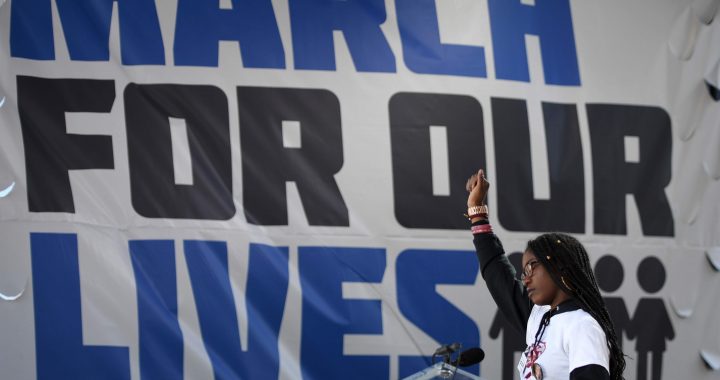
Guilty of Afghan Massacre – Staff Sgt Robert Bales
Says, “I don’t know why”
In March of 2012 Staff Sgt Robert Bales ran into an Afghan village in the middle of the night and shot 22 innocent citizens, killing 16 of them including small children. He has just been sentenced to life in prison without the possibility of parole.
Why did he do this? Although he admitted he did it he still does not know why.
In July the FDA warned FINALLY that Mefloquine [Lariam], an anti-malaria drug used for years by U.S. troops and some civilians heading to tropical hot spots, can cause long-term neurological damage and serious psychiatric side effects, according to the Food and Drug Administration even though suicides and psychosis from the drug have been reported to them for almost two decades. In fact Lariam has many similarities to the antidepressant Prozac. The attorney for Robert Bales said his client took Lariam and that this information will likely be raised at his sentencing.
Yet amazingly at his sentencing no medical experts were called to testify and no information on any medications was entered into testimony even though they had 10 experts set to testify! His attorney said they decided it would just end up being a war of the experts – a he said, she said that jurors would not want to go through.
Say what?! All mitigating circumstances in a case should be entered whether it is pleasing to anyone or not. Everyone involved in this tragedy need answers. And the public needs answers for public safety issues. If a medication is causing wild shooting sprees seems we ought to know that, wouldn’t you think?
In 2002, Robert Bales was charged with criminal assault which occurred in a Tacoma-area hotel room. He paid his fine and then completed court-mandated anger-management counseling. Once again we hear “court ordered anger management” – the same place Eric Harris and most likely Dylan Kleebold also, got their antidepressants. So the question would be which antidepressant was Robert Bales given when he attended anger management or if he was already in the military at that point which antidepressant had they already put him on that led to the assault? Or did they wait to medicate him with antidepressants until he went to the middle east?
One other very important point is that antidepressant should never be given to those who have had head injuries. Wellbutrin’s package insert gives the most warning on this, but it should be a standard warning for all antidepressants. Psychiatrist, Dr. Jay Seastrunk, has long been adamant about this warning for antidepressant users with head injuries stating the injury would produce a kindling effect for seizure activity leading to a higher rate of serious adverse reactions to antidepressants.
Sgt Bales traumatic brain injury was serious enough that he also lost part of his foot in the incident as well.
Here are some excerpts from the following articles you help you see what happened to him and if you are aware of all the antidepressant side effects you can see the reactions clearly indicating these drugs were likely involved as well:
“… he began suffering headaches after his second deployment to Iraq in 2007. He said he’d become angry for the slightest reason, such as having to wash dishes….Bales said he turned to alcohol and sleeping pills.” (Headaches, anger outbursts and cravings for alcohol are all side effects of antidepressants. And antidepressants have long been prescribed as sleeping pills.)
“Bales said when the feelings intensified after he returned home in 2010 after his third deployment, he sought counseling for a month and a half at a local clinic. But he soon stopped attending, he said.
“I didn’t believe it was helping me.”
When he received orders for his fourth deployment, this time to Afghanistan, in late 2011, “I didn’t want to go,” Bales said.
He tried to transfer to a recruiter’s job, he said, but missed a deadline.
Here you see his paranoia builds escalating to hallucinations where he thought he was seeing signals coming from these homes. He thought they were the enemy obviously which is temporary insanity and should have been introduced into evidence:
“While deployed, Bales said his anger and fear escalated at the remote Camp Belambay, as did his drinking and use of drugs. He described flying into rages and growing increasingly paranoid.
“I saw threats everywhere,” he said. “I saw IEDs all the time … Looking back on it now, it’s different. It was just me.”
“The night before the massacres, Bales testified, he perceived seeing light signals being flashed between the two Afghan villages.”
Considering how many of our troops are being “medicated” the miracle is that there are not more of these tragedies.
UPDATE: Bales was taking an antidepressant at the time. According to his wife they were both taking an antidepressant.
WARNING: In sharing this information about adverse reactions to antidepressants I always recommend that you also give reference to my CD on safe withdrawal, Help! I Can’t Get Off My Antidepressant!, so that we do not have more people dropping off these drugs too quickly – a move which I have long warned can be even more dangerous than staying on the drugs! The FDA warns that any abrupt change in dose of an antidepressant can produce suicide, hostility or psychosis. And these reactions can come on very rapidly! Find the CD here: http://store.drugawareness.org/
Ann Blake Tracy, Executive Director,
International Coalition for Drug Awareness
www.drugawareness.org & http://ssristories.drugawareness.org
Author: ”Prozac: Panacea or Pandora? – Our Serotonin Nightmare – The Complete Truth of the Full Impact of Antidepressants Upon Us & Our World” & Withdrawal CD “Help! I Can’t Get Off My Antidepressant!”
Original articles:
FDA drug warning could affect Bales’ sentencing in Afghan massacre
http://seattletimes.com/html/localnews/2021500602_mefloquinefdaxml.html
Did malarial drug play role in Bales’ Afghan murders?
http://seattletimes.com/html/localnews/2021423075_balesmefloquinexml.html
Bales apologizes for Afgan massacres:
http://seattletimes.com/html/localnews/2021669357_baleshearing23xml.html
New York Times timeline on the Bales case:
http://topics.nytimes.com/top/reference/timestopics/people/b/robert_bales/index.html




